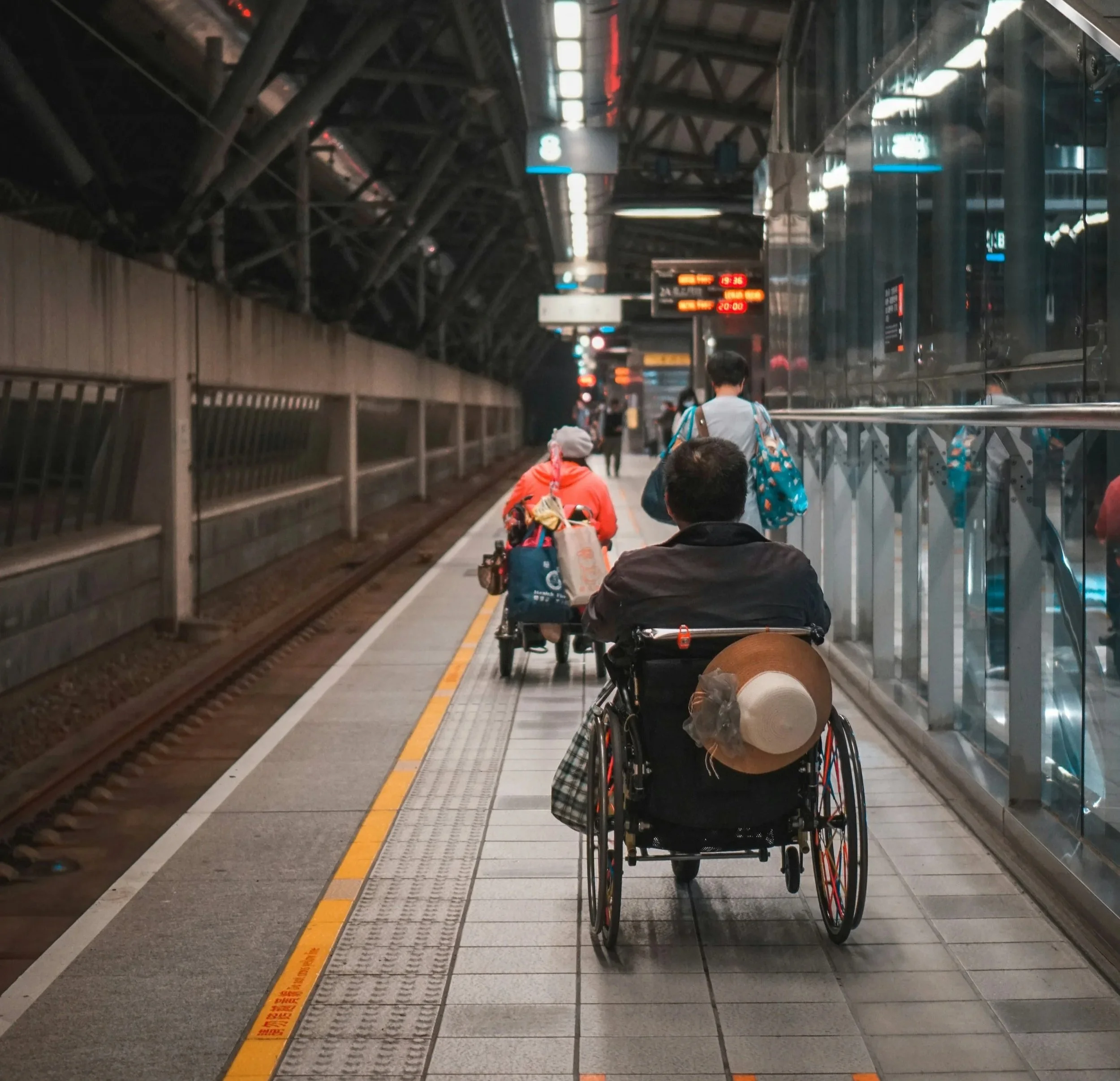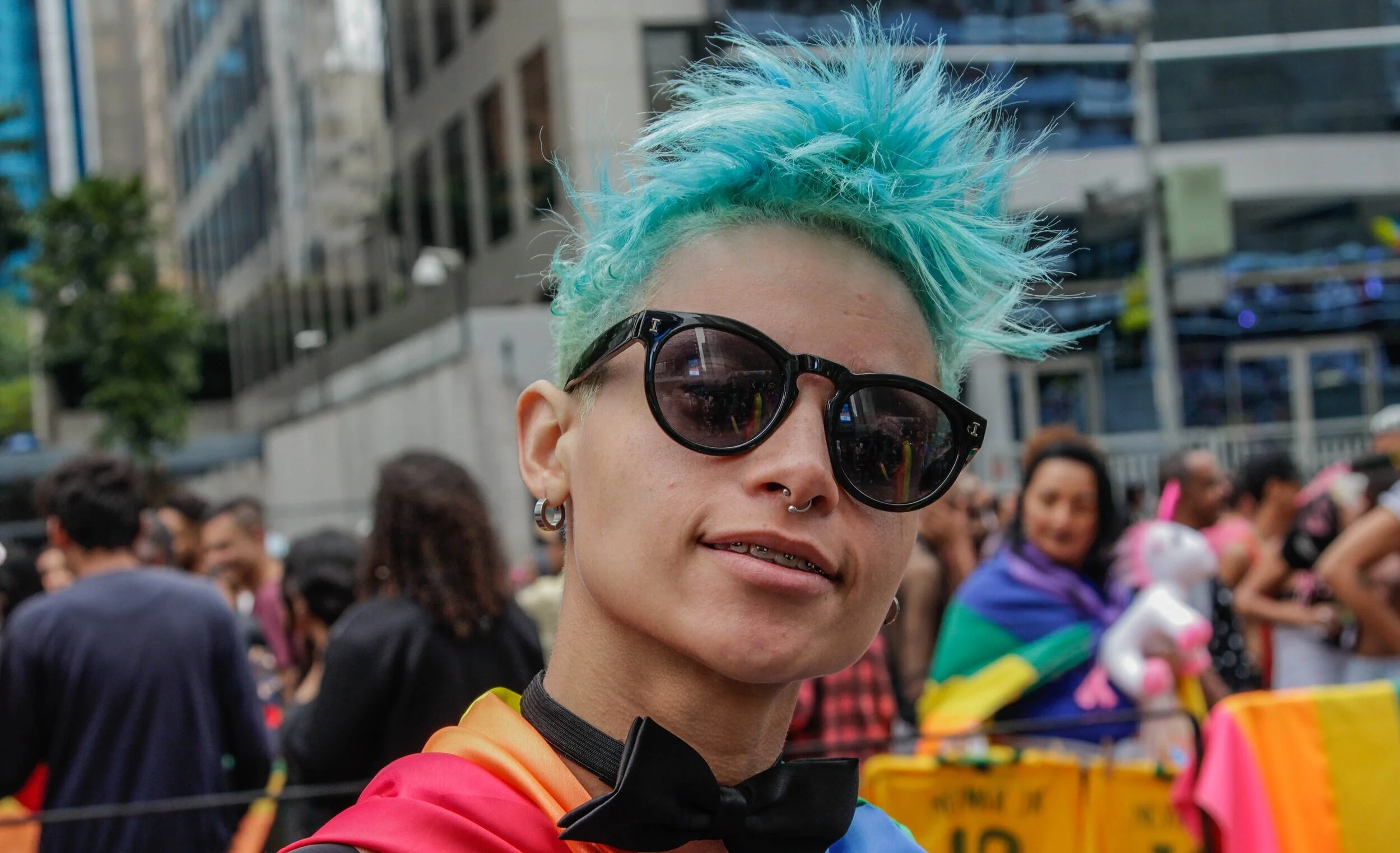ARE WE DOING ENOUGH?

ARE WE DOING ENOUGH?
We’ve gotten better at talking about inclusion. But when I look around, I still see too many people adapting to environments that haven’t even tried to meet them halfway. Sometimes, it starts with something as basic as getting to the office. In New York, I often hear subway announcements stating that the elevators are out of service. I think about the people in wheelchairs, with canes, with strollers, or chronic pain, and how something as simple as arriving at work requires a backup plan, a workaround, or just more energy than most of us ever have to spend. That’s not inclusion - that’s endurance. And we don't talk about it nearly enough.
In many spaces I’ve worked in, we’ve made great strides. We talk more openly about equity, we design better policies, and we challenge outdated ideas about gender, race, and even hierarchy. It’s progress worth celebrating. But I still find myself asking: Are we doing enough for people who are disabled, neurodivergent, or navigating a world that wasn’t designed with them in mind?
And I don’t just mean having an accessibility statement on a website or checking the closed captioning box. I mean real inclusion - the kind that considers dignity, access, autonomy, and value. Like many people, I’ve worked with colleagues who live with chronic pain, invisible disabilities, or learning differences they rarely disclosed. I’ve seen friends struggle in physical spaces with no awareness of their needs. I’ve watched brilliant thinkers burn out in environments that prize speed over depth and volume over nuance. I’ve seen hiring managers default to “fit” instead of flexibility. Not out of malice, but just because no one ever asked them to think beyond the norm.
We don’t talk about it enough. We don’t pause often to ask: Who is still having to adapt in order to feel welcome, let alone thrive?
I’ve come to believe that true inclusion asks us to move beyond what feels familiar. It asks us to unlearn the assumption that everyone navigates the world the same way we do. It invites us to ask better questions - of our systems, our leaders, and ourselves.
Questions like:
Are our job descriptions quietly filtering out brilliant neurodivergent thinkers?
Is “on camera” really necessary for everyone?
Do our return-to-office policies give space and thought to people with mobility needs, caregiving roles, or social anxiety?
Are we treating disability as a compliance issue instead of a culture priority?
To be clear, I’m still learning. I catch myself making assumptions oe missing cues, and that’s okay - as long as I stay committed to evolving. The same way I’ve challenged myself to expand my understanding of gender, age, identity, and race, I want to continue expanding my idea of what inclusion really means.
Because disability isn’t rare. Neurodivergence isn’t new. We just don’t always see it or make space for it, until someone raises their hand, asks for what they need, or quietly leaves the workforce altogether. That, to me, is the heartbreak we can do something about. It’s a privilege to feel comfortable in the workplace. It’s a luxury to feel like it was built for you. And if we want to build cultures that truly reflect the people within them, we have to acknowledge who’s still working harder than they should just to be seen and supported.
We’re not there yet. But we can get closer. If we’re honest. If we’re curious. If we keep asking: are we doing enough?
The beauty of this work lies in its complexity, just like people. And if we let that complexity guide us, instead of overwhelm us, we just might build something better. You don’t need to have all the answers to be part of the change. You just need to be willing to ask the question.






